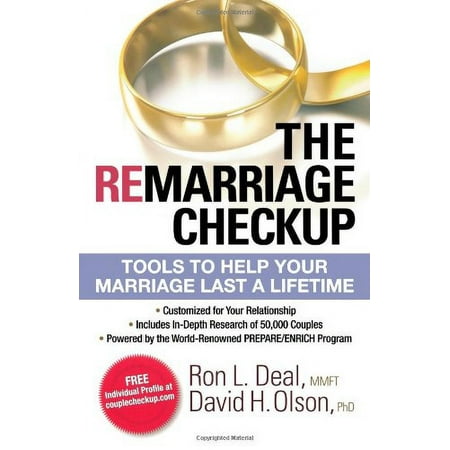Why take a marriage test?
Every couple has issues in maintaining all of the essential traits a marriage needs to keep it's long-term health and happiness. This test can help marriages determine strengths, areas that need improvement and overall state of well-being.
Does your marriage have a bad attitude?
Before you can proceed with the test we recommend you determine if your marriage has the current ability to overcome your differences in personality. We refer to this value system as Your Marriage Attitude (YMA). It can help you and your spouse further discuss your differences in an effort to hone in on the problems that damage your marriage.
Click here to determine your marriage attitude (YMA) or proceed with your DMK Marriage Essentials Test
DMK Marriage Essentials Test
Each spouse will rate the marriage traits on the list of Marriage Essentials. The rating is between one and ten (ten being the best) and is based on how each spouse feels about the specific trait in accordance to their marriage. Review the table below for an example of possible points based on the system of rating of each Marriage Essential and the overall potential scores for the test.
This test is meant to be fun and helpful in improving communication in your marriage. It's not meant as professional advice or to be used in place of counseling.
Table 1. Example of Rating System
| DMK Marriage Essentials | Wife's Rating | Husband's Rating | Combined Rating |
| communication | 0-10 (10) | 0-10 (10) | 0-20 (20) |
| awareness for each other | 0-10 (20) | 0-10 (20) | 0-20 (40) |
| love and regard for vows | 0-10 (30) | 0-10 (30) | 0-20 (60) |
| passion and excitement | 0-10 (40) | 0-10 (40) | 0-20 (80) |
| time alone with one another | 0-10 (50) | 0-10 (50) | 0-20 (100) |
| commitment | 0-10 (60) | 0-10 (60) | 0-20 (120) |
| good sex life | 0-10 (70) | 0-10 (70) | 0-20 (140) |
| interest in each other | 0-10 (80) | 0-10 (80) | 0-20 (160) |
| support and encouragement | 0-10 (90) | 0-10 (90) | 0-20 (180) |
| plans for the future together | 0-10 (100) | 0-10 (100) | 0-20 (200) |
| honesty and fidelity | 0-10 (110) | 0-10 (110) | 0-20 (220) |
| consideration and respect | 0-10 (120) | 0-10 (120) | 0-20 (240) |
| empathy and compassion | 0-10 (130) | 0-10 (130) | 0-20 (260) |
| Total Scores | 130 Possible | 130 Possible | 260 Possible |
Grade your marriage to determine it's current state of happiness and areas that need attention.
The Marriage Grading System
How to grade your marriage
Your total Marriage Essential test scores are useful in determining the overall health and happiness of your marriage. The differences in individual views on it's health and happiness, based on comparisons of each spouse's total points, can open a discussion to areas that need attention.
- Each spouse grades on the scale of 0-10.
- This means the total points together for each essential need is 20.
- Add your total combined points and divide by 13 to get your score or use the chart below.
| Marriage Score | Total Points Together | Total Individual Points | Marriage Health | Action Needed |
| Excellent 90% - 100% | 234 - 260 points | 117 - 130 points | Healthy & Happy | Little to None |
| Good 80% - 89% | 208 - 233 points | 116 - 104 points | Healthy & Acceptable | Work on Specific Essentials |
| Fair 70% - 79% | 182 - 207 points | 91 - 103 points | Moderately Healthy | Immediate Action (IA) |
| Poor 60% - 69% | 156 - 181 points | 78 - 90 points | Depressed Marriage | IA, Possible Counseling |
| Fail <60% | 155 points or less | 77 points or less | Depressed & Detrimental | IA, Counseling, Possible Separation |
| Immediate action needed also when Total Individual Points vary too much between spouses. |
|
If the couple is more than two percentage scores apart (Husband, Excellent w/119 points, Wife, Fair w/90 points) despite a Good Overall Marriage Percentage Score, immediate action is needed based on variances of each spouse and the marriage attitude (YMA). |
The Marriage Essential Grading System (together)
How to grade your marriage on individual essentials
The score for each essential need should also be determined to pinpoint areas that need attention.
- Maximum points on each essential need is 20.
- Add your points together and divide by 20 to score your marriage on each essential or use the chart below.
- Example: Communication - Wife 0, Husband 10 (0+10=10 divide by 20= 50%).
| Marriage Essential Score | Total Points Together | Marriage Essential Health | Action Needed |
| Excellent 90% - 100% | 18 - 20 points | Healthy & Happy | Little to None |
| Good 80% - 89% | 16 - 17 points | Healthy & Acceptable | Possibility to Improve |
| Fair 70% - 79% | 14 - 15 points | Moderately Healthy | Immediate Action (IA) |
| Poor 60% - 69% | 12 - 13 points | Negative Affect on Marriage | IA, Possible Counseling |
| Fail <60% | 11 points or less | Leads to Depressed Marriage | IA, Counseling Recommended |
The Marriage Essential Grading System (individual spouse)
How to grade each spouse on individual essentials
When a score is low, it helps to understand if it is that way based on a difference in each spouse's Marital Attitude, value system of essential needs.
- Maximum points for each essential need is 10.
- Divide your individual points by 10 to get your score for each individual essential or use the chart below.
- Example: Communication - Wife 0=0%, Husband 10=100%.
| Marriage Essential Score | Total Individual Points | Individual/Marriage Essential Health | Action Needed |
| Excellent 90% - 100% | 9 - 10 points | Healthy & Happy | Little to None |
| Good 80% - 89% | 8 points | Healthy & Acceptable | Possibility to Improve |
| Fair 70% - 79% | 7 points | Moderately Healthy | Immediate Action (IA) |
| Poor 60% - 69% | 6 points | Negative affect on Individual/Marriage | IA, Possible Communication |
| Fail <60% | 5 points or less | Depressed & Detrimental | IA, Counseling Recommended |
Why does it help to know individual points on each Marriage Essential?
Couples of unhappy marriages don't share a positive opinion of their marriage, scoring Poor or Low on the Marriage Essentials Test and are unwilling to compromise on personal views as they negatively affect YMA. These opposing viewpoints are recognized in the Marriage Essentials Test when a significant variance occurs in how each spouse rates specific essentials (see The Marriage Essential Grading System - individual spouse section above).
Example: If one spouse feels communication is terrible and the other feels it's excellent, then the spouse who rates communication a 10 (best), while the other rates it a 0, likely values communication less. This means, he/she will need to work on communication skills while the other spouse must be patient and willing to express what he/she needs in order to increase the score for that marriage essential.
If both rate communication (husband 10, wife 7) similarly, it's possible that awareness of the difference and one spouse's wish for improved communication could decrease the difference of opinion and improve long-term communication. But no great disparity is actually recognized.
If they both rate communication (husband 5, wife 6) similarly - but low, it's an immediate need for improved communication.
Why this test will help your marriage

Most often, the grades will mirror your feelings about your relationship if you and your spouse have a similar marriage attitude (YMA). If one spouse feels completely opposite of the other then the grade will accurately regard the overall health of the marriage, but will mirror only one spouse's current feelings about the marriage, indicating immediate action should be taken. That action varies according to the couple, the marriage, each spouse and circumstances.
The four major benefits of the test:
- It tells like-minded spouses specific areas of their marriage that require their attention in order to attain overall marriage happiness.
- It gives marriages whose spouses have different backgrounds or value systems (YMA) an opportunity to illuminate problems otherwise missed by one or both spouses.
- It suggests areas of the marriage that need attention based on both spouses low rating of specific essential needs.
- The test can be done at multiple stages of the marriage when fundamental efforts are needed in order to realize what is missing or wrong in the marriage based on changes in the couples YMA (which may include changes a couple will experience as the marriage matures - including family, money, intimacy, communication, individual perspective, etc.).
Why one spouse must compromise
Not only does the test help you and your spouse realize the health of your marriage, but it helps to bring out the specific traits that need attention and the differences of opinion about these traits.
Since these are all necessary qualities on the list of the DMK Marriage Essentials, honest responses that undervalue these traits, indicate a spouse's disregard for one or more of the essential traits of marriage. This is when one spouse needs to compromise to achieve it's success. The other must be reasonable and patient in his/her expectation of the adjustment.
It's not just about passing the test...
..it's about happiness. Both spouses should be satisfied with their score and always willing to work on the areas that need improvement. It's important to recognize that even if a specific marriage essential has a passing grade, it may still be too low to maintain overall happiness in your marriage.
Your marriage isn't like your neighbors
Each marriage will value each essential need differently. In example, poor communication is a primary precipitator to divorce, but if both spouses feel less communication is okay, then they both may rate that specific essential need high, even though they may not actually have effective communication skills as a married couple. This is perfectly fine if the overall marriage is healthy. When the marriage is unhealthy, the couple may need to explore each essential need for a link to associated areas of dissatisfaction in their marriage. Usually, this happens when the YMA has been affected and the changes create a disparity where formerly there was none.
Example:
Both spouses formerly rated communication (husband 8, wife 7), but talked very little and rarely expressed their feelings with one another, but their overall marriage happiness was acceptable to each of them and they both shared a similar YMA thus leading to a Fair score for Communication, no immediate attention was necessary (though still recommended) at the time of the test.
Years later following a life threatening illness, job loss and financial setbacks, the couple took the test again with the following results (husband 3, wife 8). Not only did the rating change, but there was a major disparity between the spouse's score indicating a need for immediate attention due to both issues:
- low score (Fail)
- major variance in scores (based on YMA)
While the issues may seem obvious as to why the score and variance occurred - in life, it isn't so easy to see. Issues occur over a period of time and can change Your Marriage Attitude without each spouse realizing it. One spouse may individually experience a major life changing event, usually both will be affected as a result.
Sometimes the changes that negatively affect one spouse, actually have the opposite affect for the other. Other times, both may notice the downturn in their marriage and personal happiness. However, both spouses will experience changes in their own way. This can lead to valuing each essential need differently.
Example: The changes could cause one spouse to seek more from the relationship while it induces the other to drift away from it.
Marriages don't need a perfect score to be happy
Most marriages will never have 100% of these essentials even though each essential is considered a necessary component for a "perfectly happy marriage". But a marriage doesn't need to be perfect to be happy. The Marriage Essentials give you a goal and awareness of what's needed and/or missing at any given time.
Remember, you grade your marriage during multiple stages of your lives with consideration of Your Marriage Attitude, a determination of value based on your individual expectations and beliefs.
Your score will be completely accurate despite it's subjective nature because while you manage your marriage together as individuals, it requires attention from both for it's success. It is wholly dependent on each spouse's ability to give and accept love.
For instance, if one spouse feels the marriage has poor communication while the other feels it has good communication, that essential need will get 50% of it's total possible score. This means the marriage has poor communication because a marriage needs both spouses to be successful. It only takes one spouse to feel the marriage is not worth saving, to lead to divorce.
You fail your marriage when you ignore problems
The marriage is not doomed if some essential needs are scored low by one or both spouses, unless it is ignored. Most marriages will have problem areas at one time or another.
Example: If you score low on sex, it means you have located a problem area of your relationship and now you both can spend time improving your sex life. The overall affect not only improves that essential need, but improves your overall marriage health and personal happiness. So, be scrutinizing when scoring every essential need. It means you regard the seriousness of each marriage essential.
While one essential need may not seem important, each has been listed as a primary need for a happy, long marriage. It's lack thereof, a precipitator to marriage depression and divorce.
The 13 essential needs and evaluation of your marriage attitude can help you recognize that despite the closeness of your relationship, each spouse may have completely different opinions or expectations. Use the essential needs like a guide to bring you both back to the same page thus improving communication and your marriage attitude.
Marriage depression
It's important to recognize a problem that is ongoing, unrelenting or worsening. Just like sadness and depression as individuals, sometimes problems have a way of working themselves out and a period of "marriage" sadness needs no intervention. However, just like when sadness continues in an individual's life for long-periods of time, affects his/her ability to normally function or has other symptoms of anxiety or depression, immediate intervention is needed. Consider reading more about marriage depression in the October, 2020 DMK article, "Could it be Marriage Depression?"
Take it again
If you tested good or excellent, but feel your marriage is still lacking in some way, you may want to retake the test with greater consideration to each marriage essential need. You may have completed the test too quickly and assumed that if you scored high on the test or each essential need, it meant you and your spouse had a healthy, happy marriage despite knowing in your mind and heart something is still missing or not right.
Now, take the test again in an effort to realize problem areas that upon longer consideration may have been undervalued and not fully considered as an opportunity for relationship improvements. Really think about scenarios in your relationship that represent each essential need to substantiate the original points awarded to that specific trait.
Example: In scoring "Honesty and Fidelity" from the list of Marriage Essentials, you both awarded 8 points each since it is something you have each been working on more in recent months. This resulted in a good score for each spouse and as a couple. Your overall Marriage Score was also, good with 209 points. Knowing your relationship has suffered since a financial infidelity in the past year, you both felt the score is incorrect.
Before retaking the test, you took the time to think about specific issues and realized that much of what is still bothering you revolves around the dishonest behavior that lead to the financial indiscretion regarding your savings. While you both have discussed the primary issue many times, resulting in an expectation for a higher level of honesty, the score was not completely accurate since problems originating with honesty and fidelity were still affecting the marriage.
In reevaluating each essential need in the same capacity, you both found specific areas of the marriage that had been damaged more than once thought. In doing so, your spouse has realized the financial infidelity had a greater impact that the original improvements to communication and honesty obviously didn't solve.
It further demonstrated the severity of the indiscretion and prompted the hiring of a trained therapist with experience in such problems. While the decision was based on the revised low score of 13 points in the "Honesty and Fidelity" category, the therapy improved upon issues beyond those traits, if left unrecognized, could depress or dissolve the marriage. It prompted open, honest dialogue about all issues that contributed to the financial loss and feelings associated with it that increased other damaging behaviors affecting the marriage (also recognized in a lower score in other marriage essentials). Retaking the test helped the couple target specific problems affecting the marriage. This helped in selecting the right therapist and decreased costs and time associated with the therapist determining issues affecting the marriage.
All of which was originally missed when taking the test the first time.
Disclaimer
The information provided by respective owner's ("we", "us" or "our) on Divorce Me Knot (referenced also as "DivorceMeKnot.com", "dmk", "DMK", "OurDMK.com", "OurDMK", "application" or "site") is for general informational purposes only and is subject to change with or without notice. All information on our site and application is provided in good faith, however we make no representation, guarantee or warranty of any kind, express or implied, regarding the accuracy, validity, adequacy, reliability, availability or completeness of any information on the site or application.
The information in articles and all content on this site should not be considered psychological or behavioral health therapy, counseling or legal, financial, real estate, mortgage, insurance or professional advice. It should not be used in place of professional advice from a licensed professional or credentialed expert. Providers of content on this site, herein known as "Contributors" (inclusive of, but not limited to writers, bloggers, editors, employees, developers, graphic designers, advertisers, partners, affiliates, references, experts, professionals and site owners) are not legally liable for any misinformation, errors or omissions. Names, details and images may have been changed in the content of this site.
Under no circumstances should DMK and/or it's Contributors have any liability to users of the site for any loss or damage incurred to users as a result of the use of this site or application or reliance of any information provided on the site or application. Use of the site or application and reliance on any information from the site or application is solely at the user's own risk.
For complete site disclaimers review "Disclaimers" on this site or click the link below.











 How to resolve AdBlock issue?
How to resolve AdBlock issue?